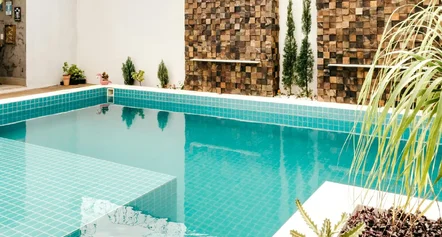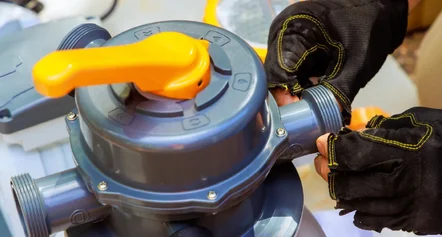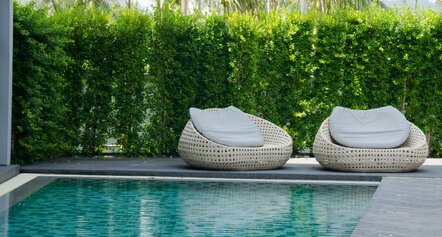Is your pool filter actually doing its job? Ever wondered why your swimming pool still looks cloudy even though the pump’s been running all day? It might be your pool filter size.
A pool filter plays a critical role in your pool filtration system—its job is to trap particles and debris as water passes through it. But the right filter size isn’t just a recommendation; it’s essential for water quality, cleanliness, and energy efficiency.
Getting it wrong could mean dirty water, increased maintenance, or damage to your equipment. To get it right, you’ll need to understand filter types, flow rate, and how these work together to keep your pool water clean.
In this guide, we’ll walk you through how to calculate the right filter size for your pool, how filter types compare, and when it might be time for a replacement.
Why Pool Filter Sizing Isn’t a Guessing Game
Choosing the wrong pool filter size isn’t just an inconvenience—it’s a problem waiting to happen. If your filter is too small, it’s going to overwork itself. That leads to poor filtration, more frequent backwash, and reduced efficiency of your filter media. It also causes unnecessary wear on your pump, increasing the need for spare parts and repairs.
On the flip side, going too big can be just as wasteful. Oversized filters don’t create enough pressure, which means they won’t trap particles effectively. The system ends up circulating dirty water, wasting energy and running up your power bill.
Incorrect filter sizing can also become a hygiene issue. Without proper flow rate and pressure, your pool water won’t get sanitised properly, raising risks for swimmers.
A correctly sized filter ensures your filter system runs smoothly, maintains water clarity, and reduces the time and money you spend on maintenance.
Know Your Pool’s Volume First
Before you even think about filters, you need to calculate the volume of your pool in litres. This is the foundation for determining the correct filter size and turnover time.
Formulas to calculate pool volume:
- Rectangular/Square Pools: Length × Width × Average Depth × 1,000 = Litres
- Round Pools: Diameter × Diameter × Average Depth × 0.785 × 1,000 = Litres
Example: A rectangular pool that’s 10m long, 5m wide and 1.5m deep:
10 × 5 × 1.5 × 1,000 = 75,000 litres
Knowing the volume of your pool helps determine how much water needs to be filtered, and how long that process takes. This affects your pump flow rate, filter capacity, and overall system efficiency.
Still unsure? Use a pool volume calculator or reach out to Flamingo Pools’ pool design service for help with measurement and planning.
What is Flow Rate & Turnover Time
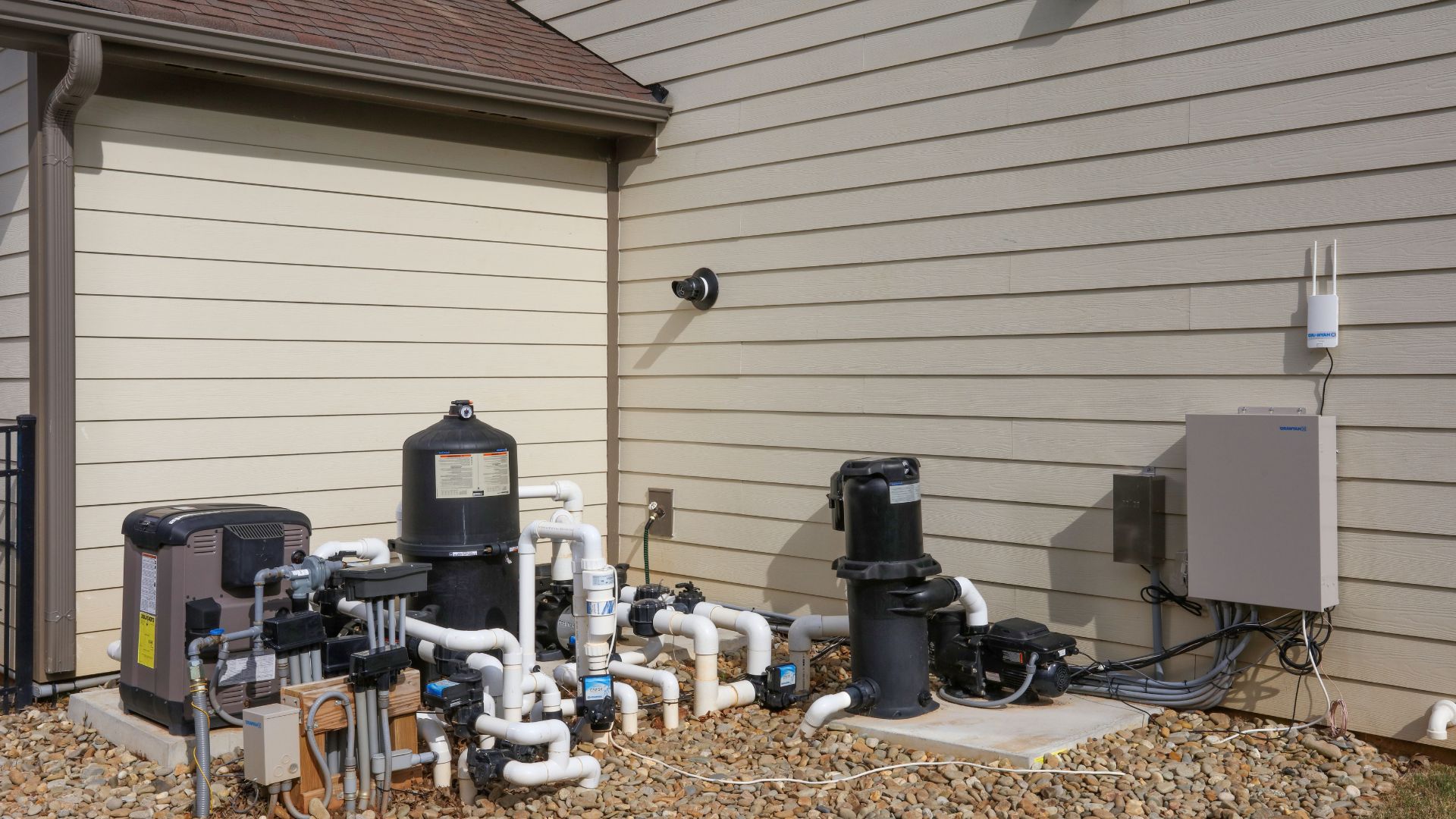
Two key factors in choosing the right filter size are flow rate and turnover time. These tell you how quickly your filter system can clean the water.
- Flow rate: Measured in litres per minute (LPM) or litres per hour (LPH), this is how fast water moves through the filter.
- Turnover time: How long does it take for all the pool water to pass through the filter once? The standard is every 6 to 8 hours.
Example: If your pool holds 50,000 litres and you want a 6-hour turnover rate:
50,000 ÷ 6 = 8,333 LPH, or roughly 139 LPM
To match that, your pump flow rate and filter flow rate should handle at least 139 LPM. It’s also smart to size your filter just above the calculated flow—this helps during peak usage.
Also, make sure your pool pump and filter are compatible. A mismatch between pump flow and filter capacity can damage your system or reduce filter efficiency.
Filter Types & Their Flow Capacities
Different filter types suit different pool setups. Let’s break down the three main ones:
- Sand Filter: A common choice for larger pools. Sand filters are affordable, easy to maintain, and use silica or glass as the filter media. Best for outdoor pools with average dirt levels, but require regular backwashing.
- Cartridge Filter: Ideal for smaller or residential pools. Cartridge filters are energy-efficient and don’t need backwashing, making them water-saving. Great for minimal maintenance, but the cartridge will need replacing.
- DE Filters (Diatomaceous Earth): These offer the highest filtration level, removing the smallest particles. Best for pools that need crystal-clear water. Requires more maintenance and careful handling.
Each has its own maximum flow rate and ideal use cases. Choose based on pool size, usage, and maintenance needs.
Matching Filter Size to Your Pool’s Specs
Once you know your pool volume and flow rate, it’s time to size your filter correctly.
First, calculate the flow rate required for your turnover time.
Example: For a 50,000-litre pool with an 8-hour turnover:
50,000 ÷ 8 = 6,250 LPH, or 104 LPM
Now find a filter that supports at least this rate. Most come with a labelled maximum flow rate—choose one slightly above your requirement to handle surges or dirtier water.
Choose your filter type accordingly:
- The cartridge filter may be rated lower, so size the cartridge filter carefully.
- A sand filter can handle higher flow, so size the sand filter slightly above your needs.
- The DE filter needs exact matching due to pressure sensitivity.
Check that the filter system matches your pump flow and is rated for the same amount of litres per hour or minute.
Common Mistakes Pool Owners Make
Here’s where pool owners often go wrong:
- Skipping pool volume calculations
- Relying only on pump strength
- Using outdated or incompatible filters
- Forgetting to check or clean the pressure gauge
- Not getting professional advice
Avoiding these pitfalls is pretty straightforward: measure, match, and consult when needed.
When to Upgrade or Replace Your Filter
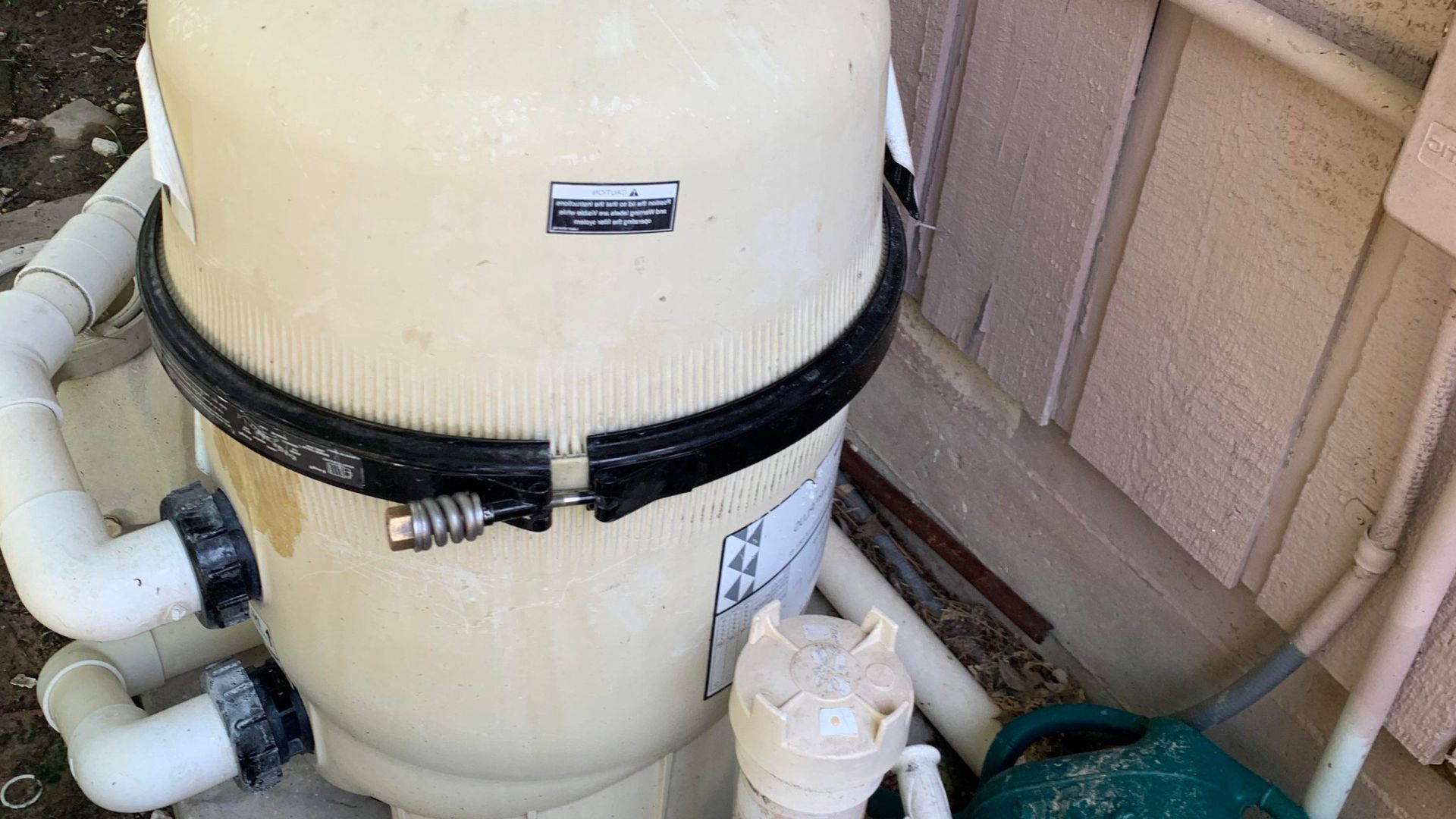
Not sure if your current filter still works?
Signs it’s time for a pool filter replacement:
- Decreased water clarity
- Unusual readings on the pressure gauge
- Frequent maintenance
- Ageing or worn-out filter media
Don’t wait until summer—a quick filter upgrade could save you serious headaches.
Let the Experts Handle the Hard Part
Don’t want to crunch numbers or guess your way through specs? Let Flamingo Pools help.
We’ll conduct site inspections, offer tailored recommendations, and handle the installation. From filter type to size filter matching, we cover every detail to ensure smooth operation.
You enjoy fresh water, lower maintenance, and total peace of mind.
Keep Your Pool Filtered, Fresh, and Fuss-Free
Finding the right filter size might feel like a chore, but it’s key to maintaining a clean, clear swimming pool.
From the volume of your pool to the flow rate, filter types, and turnover rate, there are several factors that affect your choice.
The good news? It’s all pretty straightforward when you know what to look for.
So don’t leave it too late—before summer kicks off, make sure your filter system is up to the task. Still confused? Call Flamingo Pools today. We’ll help you match the right filter to your pool and take the guesswork out of pool equipment sizing.


